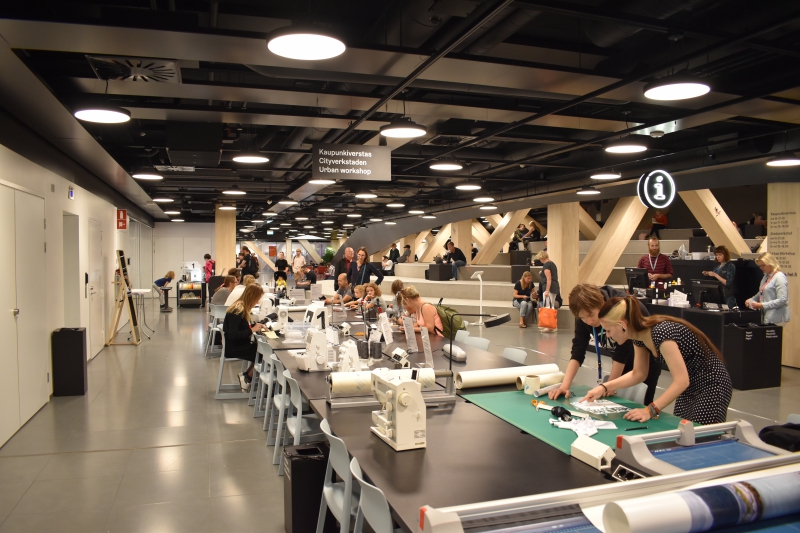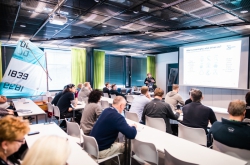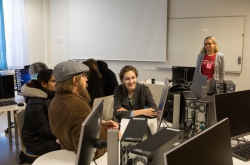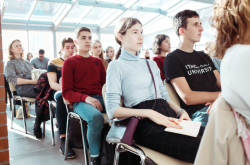The Startup Connect initiative is intended to support startups, student entrepreneurship, as well as small and medium businesses in the cross-border region, all with the aim of forming a community of business leaders ready to launch on the global market. The project is co-funded by the European Union, the Russian Federation and the Republic of Finland as part the 014-2020 South-East Finland – Russia cross-border cooperation program and is implemented by a consortium made up of Kotka-Hamina Regional Development Company Cursor Ltd., ITMO University, XAMK – South-East Finland University of Applied Sciences, and St. Petersburg Foundation for Small and Medium-Sized Enterprise Development.
The project’s framework includes Startup Connect Contest, organized for early-stage tech ventures interested in launching in the global market. The contest was open for participation for Finnish and Russian companies and dev teams creating solutions in the field of robotics, logistics, Internet of Things, Industry 4.0 and smart mobility.
Support and development of coworking spaces
This year, Startup Connect also served as a partner of the “The Baltics. Sails of the World” mission, as part of which an introductory visit was organized to the Finnish capital city of Helsinki aimed at exploring the best practices for the creation and management of coworking and public spaces.
The event is implemented with support from the Committee for External Relations of St. Petersburg, the Russian Federation Embassy in Finland, the Russian Federation Trade Mission to Finland, Helsinki City Hall, Kotka-Hamina Region Administration, the Startup Connect project and Regional Integrated Center (RIC) – St. Petersburg.
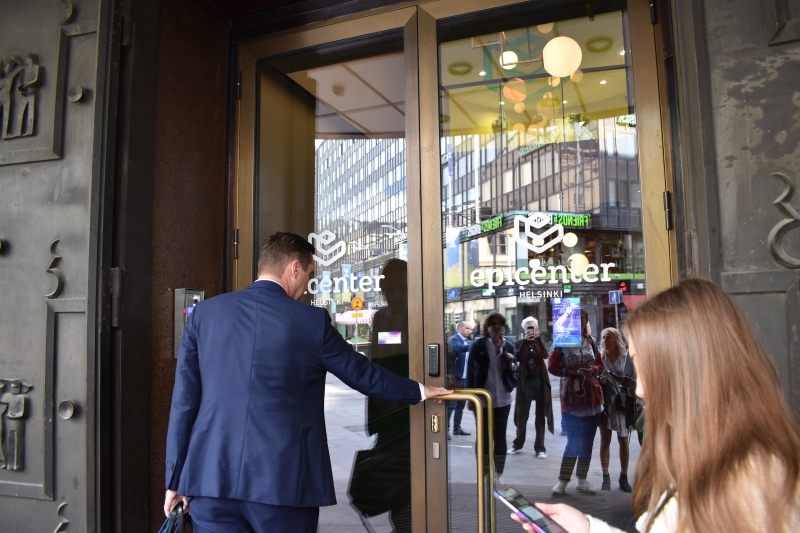
The mission’s participants, including heads of St. Petersburg’s public, creative, coworking spaces, representatives of creative industry and small business support infrastructure, as well as leaders of industrial groups, visited landmark locations and discussed collaboration opportunities with their Finnish colleagues. The delegation was headed by Andrey Khlutkov, deputy chair of the Committee for External Relations of St. Petersburg.
The visit’s itinerary started with Epicenter, the digital innovations center located in the heart of the Finnish capital. The business mission’s members also visited the library Oodi. Its building is the epitome of an ideal modern creative and coworking space: the third floor houses the library collections with special reading areas, while the second and the first floors are filled with music studios and media classes, an atelier equipped with 3D printers and various other creativity devices, meeting rooms, information booths and a cinema theater.
The St. Petersburg delegation also partook in a tour of Scandinavia’a largest startup hub, Maria 01, a meeting place for freelancers and startups. All in all, in the course of the first day, the participants visited the largest objects of the local creative space infrastructure, and exchanged experience with their Finnish colleagues in regard to the creation and development of public and coworking spaces. They have also participated in a roundtable with the representatives of the region’s business community and administrations.
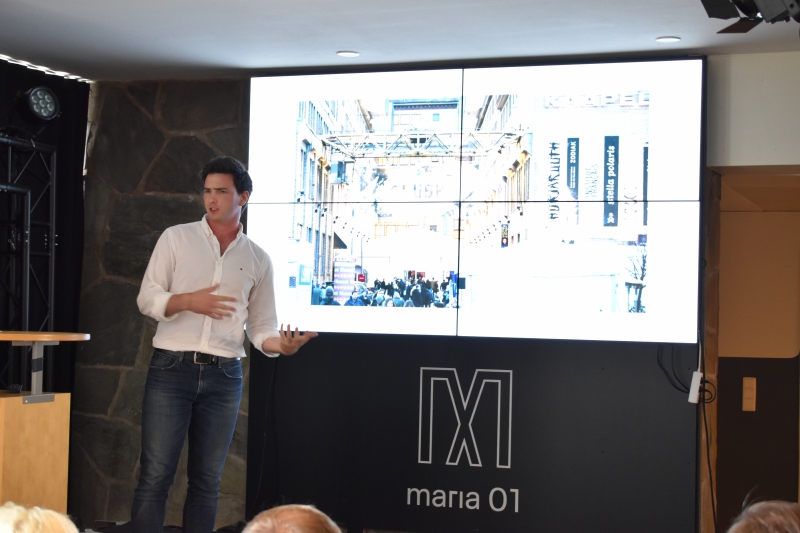
ITMO University delegation
Representing ITMO University were Olesya Baraniuk, deputy director of ITMO’s Technopark; Daria Kuk, deputy dean of the Faculty of Technological Management and Innovations; and Elena Gavrilova, director of the University’s Entrepreneurship Center.
According to Olesya Baraniuk, the ITMO staff present at the event managed to visit several organizations that share the University’s profile. Among those are Aalto Design Factory (ADF), which has a well-developed interaction with startups, as well as a number of coworking spaces, including Maria 01, ITMO’s long-standing partner, and the digital innovations center Epicenter.
“We are interested in attracting international experts into our acceleration projects, as well as in the entrepreneurship support programs implemented at ITMO. Additionally, we are considering the opportunity of attracting teaching and research staff from Aalto University,” comments Olesya Baraniuk. “Without a doubt, one of the most important goals of this visit for us was to exchange experience with our Finnish colleagues. In particular, we at Technopark, which carries out the creation and support of coworking spaces for students and startups and support of the entire entrepreneurial ecosystem at large, took great interest in many of our Northern neighbors’ practices. For example, we found it really important to discuss best practices in regard to effective space building methods, and their impact on the learning process.”
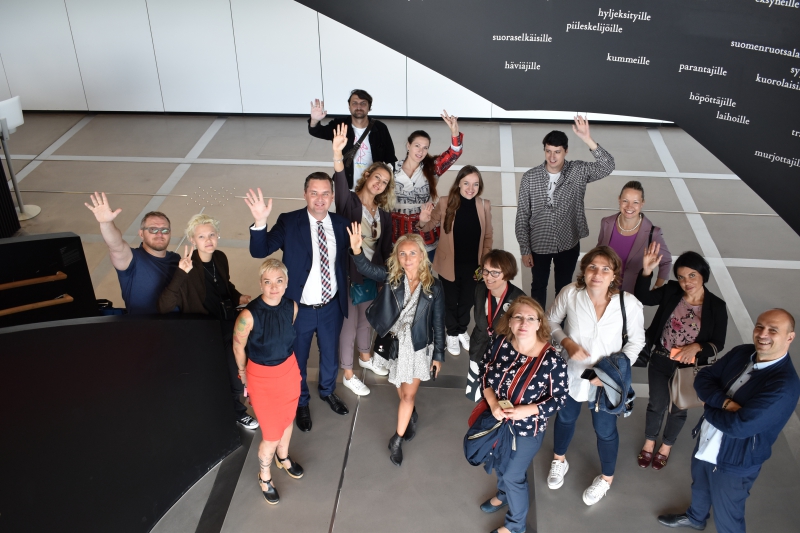
The ITMO expert also adds that as a result of the visit, the group managed to establish contacts with the specialized units of Aalto University that oversee students’ involvement into entrepreneurial activity. The Russian and Finnish colleagues also discussed a range of new initiatives planned to be implemented in the nearest future.
ITMO participant Daria Kuk notes that the visit’s program provided an opportunity to explore the best practices implemented at Aalto University (Aalto-Korkeakoulusaatio). This university is one of Finland’s leading higher education institutions, forming part of the national ranking’s top-5. It is also considered one of the best universities in terms of the quality of education and ranks among the world’s top-300 higher education institutions based on this criterion. A number of international rankings also attest to Aalto University’s great reputation among employers from all over the world.
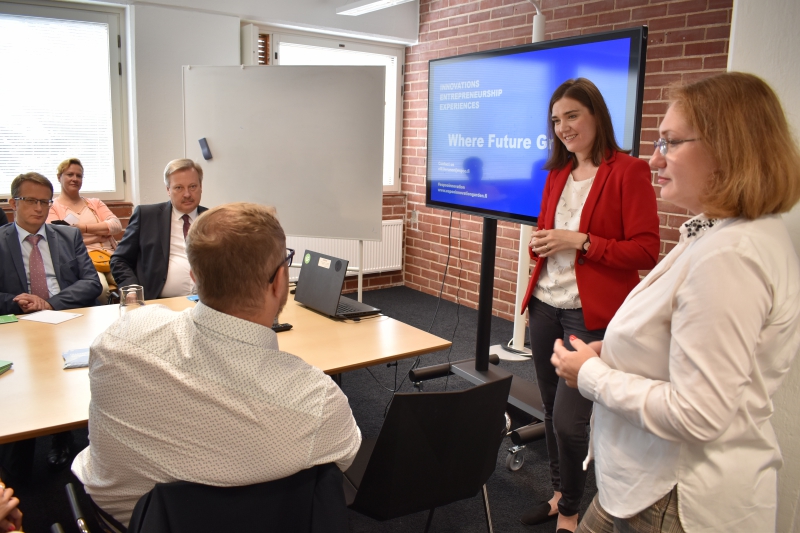
“ITMO University’s Faculty of Technological Management and Innovations is actively introducing new formats of entrepreneurship education and training. One of the reasons for my participation in this event was to familiarize myself with the approaches and working formats used at Aalto University. Among all of our closest neighbors, their business development infrastructure is probably the most developed one. It includes Europe’s biggest startup festival, a large innovations hub, and an entire network of venture funds. Apart from that, we were no less interested in starting the conversation on the possibility of inviting our students’ projects’ into Aalto University’s innovation complex. What I found the most beneficial was visiting different parts of Aalto University’s startup ecosystem and meeting their representatives. This visit opened my eyes to new ideas and solutions which can be implemented at our faculty,” shares Daria Kuk.
As mentioned by the deputy dean of the Faculty of Technological Management and Innovations, going forward, the unit’s specialists plan to implement their colleagues’ solutions, adapting those to the models developed at the University, as well continue exchanging expertise with their colleagues from Aalto University and helping their students acquire international experience at the innovative Finnish higher education institution.
